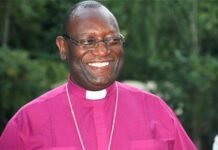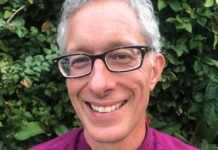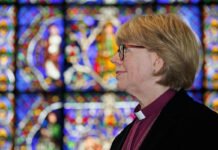A new meeting between Pope Francis and Patriarch Kirill (Gundjaev) “is in the hands of our ecclesial diplomats, it will take place when all the conditions have matured,” according to comments of the President of the Moscow Patriarchate’s Synodal Department for Relations between the Church and Society, Vladimir Legojda, in an interview with Izvestija. The interview was published today. 22 December 2021, the same day Metropolitan Hilarion Alfeev, head of the Department for External Relations of the same patriarchate, is in the Vatican.
In the long interview, Legojda reiterated the patriarch’s desire to meet the Pope of Rome again, but the timing of these meetings “depends on the maturation of the right conditions. In Cuba there was an urgency for the Middle East, now it depends on many other factors.”
The patriarchal representative then commented on the situation of Orthodox religious schools in the country, after the unfortunate attack in Serpukhov by a former student with mental problems, who detonated a bomb in front of the monastery where he had studied. The bomber died, seriously wounding several people, mostly pupils of the nuns’ school.
Legojda assured that the patriarchate is following the investigation very carefully, “children must be taken care of”. In his opinion, the problem of non-believers forced to attend religious schools can be solved with a real welcome: “They should not be chased away, but loved even more”.
The growth of aggression among adolescents and young people in Russia worries the Church, which would like to see greater selection in the films and stories that are shown in the media. “It would be naive to think of banning movies with murders, because it would lead everyone to kill each other,” Legojda comments, “but one cannot deny the responsibilities of the media in the situations we see repeated almost every day.”
He notes that this is first and foremost about unverified information, which leads people to believe even the wildest hypothesis. “In a culture dependent on literature and print” adds the patriarchal appointee, “it was easier, because at least there were editors, while the internet has radically shifted the parameters.”
According to Legojda, this does not mean that it is necessary to shut down the Internet, “but the role of education becomes decisive, to foster a deep understanding of society, authority, the life of every real person. Civilizations have been built on systems of formation”. Along with public education, the educational role of the family is fundamental, along with schools and universities, and religious associations.
Religion today has regained a central role in the life of Russian society, Legojda comments, “because people seek answers to the main questions of life and the world, so even if you don’t accept religion, you still can’t ignore it.”
Religious studies, from the history of religion to specific doctrines are “the keys to world culture, to the building of tradition.” Knowing authentic religious doctrines protects against forms of religious extremism and other radical expressions, dictated mostly by ignorance.
The pandemic has forced the distinction of priorities, even in the religious field. “One should not be afraid of death, but neither should one run toward it, putting everyone else in danger as well,” Legojda warns. For the Church it is a very serious test, which has involved many people starting with Orthodox priests, among whom there are many “antivaksery,” the Russian expression for no-vax.
Patriarch Kirill and many high hierarchs, however, have actively campaigned for vaccination, starting with the influential metropolitan of Pskov Tikhon (Ševkunov), son of a prominent immunologist. In any case, entry to Orthodox churches will remain free of the obligation to have certificates, while subject to necessary precautionary measures.



